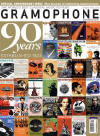Texte paru dans: / Appeared in:
*

GRAMOPHONE (04/2013)
Pour s'abonner /
Subscription information
Carus
CAR83252

Code-barres / Barcode : 4009350832527
Reviewer: Fabrice
Fitch
Schütz Zwölf Geistliche Gesänge, Op 13 SWV420-431 Dresden Chamber Choir / Hans-Christoph Rademann Carus F CARUS83 239 (59’ • DDD)
Schütz Cantiones sacrae, Op 4 SWV53-93 Frauke Hess vn Ludger Rémy org Dresden Chamber Choir / Hans-Christoph Rademann Carus F b CARUS83 252 (108’ • DDD)
Two new
volumes in Rademann’s Schütz survey traversal for Carus
The Dresden Chamber Choir’s complete Schütz project continues with two
contrasted releases. Vol 4 is devoted to the Zwölf Geistliche Gesänge, a
compilation made with Schütz’s assent by a young colleague at a time when he was
in old age (though he had in fact the best part of two decades of creativity
left). These (mostly) German settings include some of the best-known liturgical
texts, including the Magnificat, several movements of the Mass Ordinary, and the
Lord’s Prayer (whose Latin version, incidentally, is heard on the other
recording reviewed, here to the same music). With the possible exception of the
latter, the collection isn’t nearly as well known, or often recorded, as other
Schütz collections; the Litany, a liturgical passage obligé, isn’t particularly
memorable but then it’s a difficult text to bring off outside the context for
which it was intended. Some of these selections are accompanied by a small
continuo section, which grounds the choir appreciably whenever it is included.
In a previous review I suggested that the Dresden Chamber Choir is at its best when the soloists are as much in evidence as the choir – its recent, superb Musikalische Exequien being a case in point (5/12). Vol 5 of their series (a more recent recording), devoted to the Cantiones sacrae, Schütz’s Op 4, is rather more sure-footed than their Zwölf Geistliche Gesänge because the grounding influence of the continuo is more in evidence and the set’s overtly madrigalian idiom elicits a more lively and varied response from choir and conductor alike. At their habitual best, these are very enjoyable performances, considered and light on their feet; but where quicksilver changes of expression or colour are required (try the conclusion of Supereminet omnem scientiam), the results are mixed. That said, even WeserRenaissance Bremen – an ensemble with a virtually impeccable Schützian pedigree – has more mixed success in this set (recorded for CPO) than usual. Perhaps the definitive account of this, one of the composer’s most hybrid publications, is yet to come. Other issues from this set have proved more conspicuously successful but following its progress is very rewarding.
Cliquez l'un ou l'autre
bouton pour découvrir bien d'autres critiques de CD
Click either button for many other reviews


